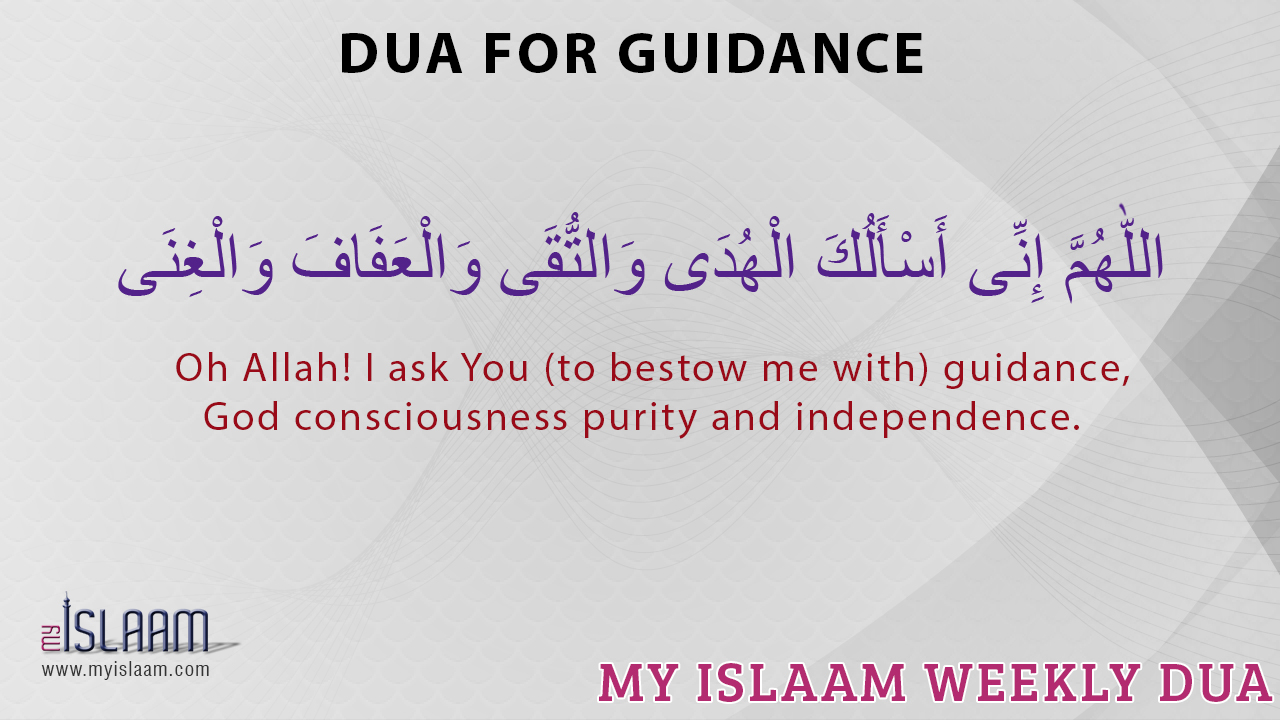Jabir, Allah be pleased with him narrates that the prophet of Allah, Allah send peace and blessings upon him would teach us (the prayer and supplication for) Istikharah (seeking good from Allah) like he would teach us a chapter from the Quran. (He would say) when one of you intends to do something then he should offer two Rakats of (optional) prayer and say (after completion, while making Dua)
Oh Allah! I seek goodness from You because of your knowledge (of what is good for me) and I ask You to grant me the ability (to do what is best) because of Your power and I ask You (to grant me) of Your great favour, because You have power and I do not, and You know (what is best for me) and I do not, and You have full knowledge of the unseen. Oh Allah! If You know that this matter (at this point, the one supplicating should mention the matter) is better for me with regards to my Deen, my worldly life and the outcome of my affairs, (one narrator has doubt on the wording of the Dua and says or the Messenger said, for my current matters and future matters) then make it destined for me, and if You know that this matter (at this point, the one supplicating should mention the matter) is bad for me with regards to my Deen, my worldly life and the outcome of my affairs, (one narrator has doubt on the wording of the Dua and says or the Messenger said, for my current matters and future matters) then turn it away from me and turn me away from it and destine for me good wherever it may be and then make me pleased with it.
Note:
- Other narrations have a slight variation of words.
- It is not necessary or recommended but merely permissible to offer the two Rakats before sleep.
- The outcome of Istikhara should not be anticipated in the form of a dream.
عَنْ جَابِرٍ ، رَضِيَ اللَّهُ عَنْهُ ، قَالَ كَانَ النَّبِيُّ صلى الله عليه وسلم يُعَلِّمُنَا الاِسْتِخَارَةَ فِي الأُمُورِ كُلِّهَا كَالسُّورَةِ مِنَ الْقُرْآنِ إِذَا هَمَّ بِالأَمْرِ فَلْيَرْكَعْ رَكْعَتَيْنِ ثُمَّ يَقُولُ
اللَّهُمَّ إِنِّي أَسْتَخِيرُكَ بِعِلْمِكَ وَأَسْتَقْدِرُكَ بِقُدْرَتِكَ وَأَسْأَلُكَ مِنْ فَضْلِكَ الْعَظِيمِ فَإِنَّكَ تَقْدِرُ ، وَلاَ أَقْدِرُ وَتَعْلَمُ ، وَلاَ أَعْلَمُ وَأَنْتَ عَلاَّمُ الْغُيُوبِ اللَّهُمَّ إِنْ كُنْتَ تَعْلَمُ أَنَّ هَذَا الأَمْرَ خَيْرٌ لِي فِي دِينِي وَمَعَاشِي وَعَاقِبَةِ أَمْرِي ، أَوْ قَالَ عَاجِلِ أَمْرِي وَآجِلِهِ – فَاقْدُرْهُ لِي وَإِنْ كُنْتَ تَعْلَمُ أَنَّ هَذَا الأَمْرَ شَرٌّ لِي فِي دِينِي وَمَعَاشِي وَعَاقِبَةِ أَمْرِي ، أَوْ قَالَ فِي عَاجِلِ أَمْرِي وَآجِلِهِ – فَاصْرِفْهُ عَنِّي وَاصْرِفْنِي عَنْهُ وَاقْدُرْ لِيَ الْخَيْرَ حَيْثُ كَانَ ثُمَّ رَضِّنِي بِهِ
وَيُسَمِّي حَاجَتَهُ.
(رواه البخاري، باب الدعاء عند الاستخارة)

 Purity is half of faith
Purity is half of faith 












